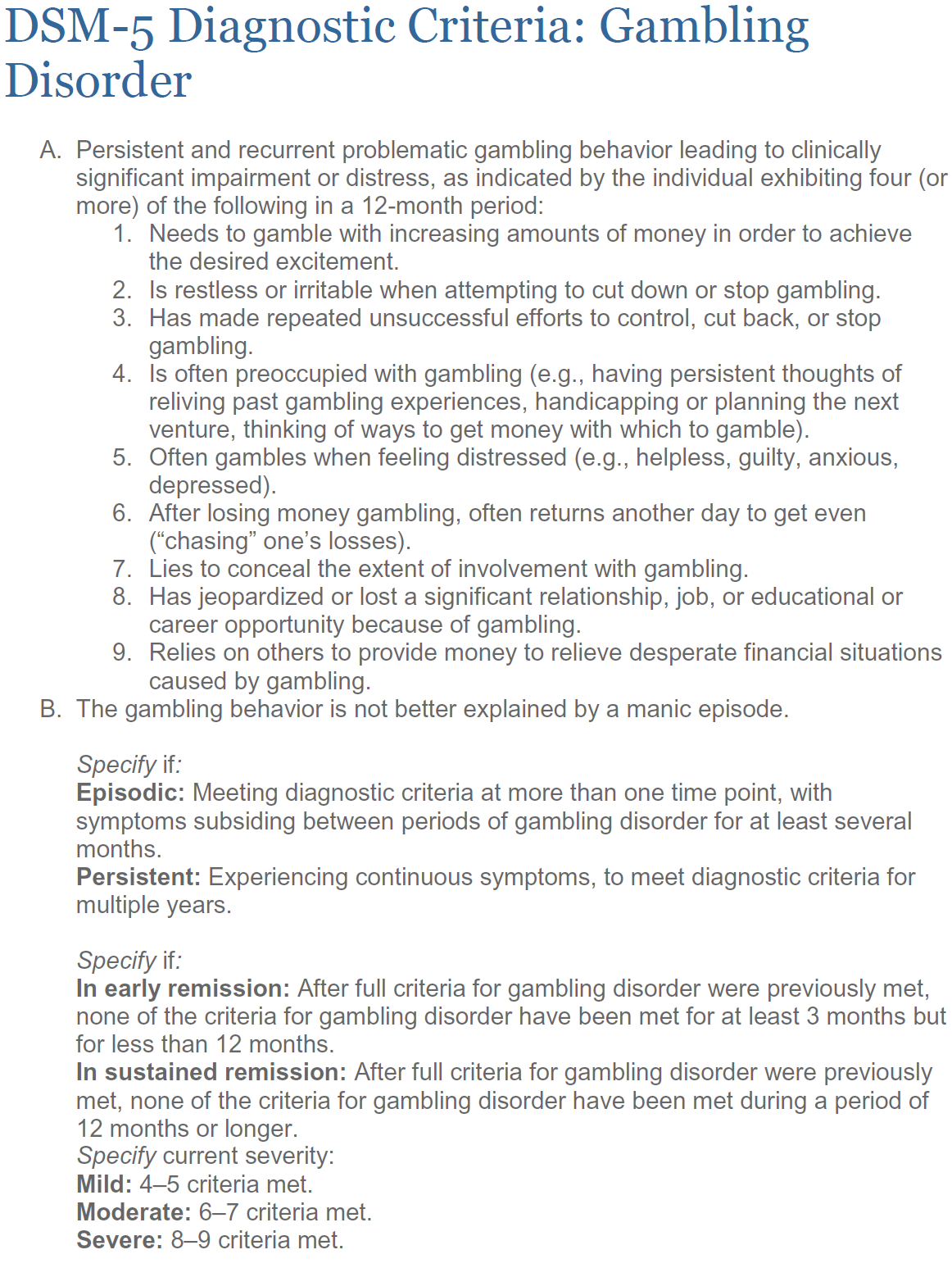Gambling disorder
- Gambling disorder (GD) is a psychiatric condition featuring recurrent, maladaptive gambling behavior that leads to clinically significant distress.
- GD was reclassified into the "Substance-Related and Addictive Disorders" group of the Diagnostic and Statistical Manual of Mental Disorders, Fifth Edition (DSM-5) (1)
Context in the UK (2):

- 73% of adults gambled in the past 12 months,with the majority doing so without any harm to themselves or others
- however, 0.9% (about 450 000 adults) gamble to a degree that damages or disrupts their personal, family or recreational pursuits, and such people are described as problem gamblers
- the British Gambling Prevalence Survey (3) found that:
- 6.5% of the population were 'at risk' of becoming problem gamblers in the future
- especially vulnerable were Black and minority ethnic groups, young people and people with mental health and substance misuse problems. For those who gamble at risky levels, brief psychological interventions offered early on in their 'gambling careers' have been found to be effective in preventing the progression of their ‘at risk’ gambling to more problematic behaviours
- 6.5% of the population were 'at risk' of becoming problem gamblers in the future
A 'Rapid Evidence Review of Evidence-Based Treatment of Gambling Disorder in Britain' was undertaken by the UK Royal College of Psychiatrists (4):
- Pyshcological Interventions - Cognitive Behavioural Therapy (CBT) has been found to be more effective than no intervention, and that treatment either in individual or group delivery should be used to reduce problem-gambling behaviour, problem-gambling severity and distress caused by problem gambling
- Medication - "Naltrexone can be used to reduce gambling severity in problem gamblers. It should be prescribed by an experienced practitioner, with appropriate skills and training, and careful consideration must be given within the clinical encounter to contraindications.
Antidepressant medication should not be used to reduce gambling severity in people presenting with problem gambling alone. It is however appropriate to prescribe Selective Serotonin Re-uptake Inhibitors (SSRIs) in people with comorbid depression and gambling disorder, but there is no evidence that this improves gambling outcomes."
Reference:
- American Psychiatric Association: Diagnostic and Statistical Manual of Mental Disorders. Fifth Edition. Washington, DC: American Psychiatric Association. 2013.
- George S, Bowden-Jones H.Treatment provision for gambling disorder in Britain: call for an integrated addictions treatment and commissioning model.BJPsych Bull. 2016 Jun; 40(3): 113-115
- Wardle H, Moody A, Spence S, Orford J, Volberg R, Griffiths M, et al. British Gambling Prevalence Survey 2010. Gambling Commission, 2011.
- UK Royal College of Psychiatrists (December 2016). Rapid Review of Evidence-based treatment of Gambling Disorder in Britain.
Create an account to add page annotations
Add information to this page that would be handy to have on hand during a consultation, such as a web address or phone number. This information will always be displayed when you visit this page